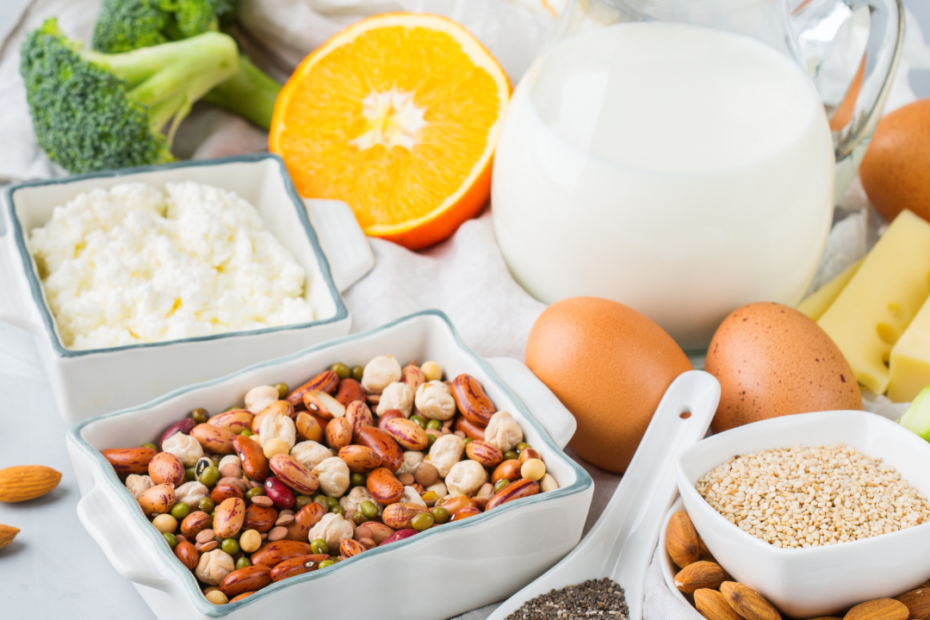After the age of 35, bone mass steadily declines in both men and women, with bone breaking down faster than it rebuilds. The best way to avoid age-related loss of bone mineral density, also known as osteopenia, that can progress to osteoporosis, is to build strong bones early on. Osteoporosis happens when the bones become porous and weaker, thus increasing the risk of fractures. Here are some ways to naturally boost your bone health.
Eat more calcium. Calcium is essential for strong bones. Choose dairy products such as yogurt, milk, cheese, and cottage cheese. If you are lactose intolerant or don’t eat dairy products, you can find calcium in fortified plant-based milk, sardines or salmon with bones, leafy greens such as kale, Bok choy, collard greens, broccoli, almonds, and tofu. Women should aim for 1000-1200 mg of calcium per day. Men should aim for 1000-1200 mg calcium per day.
Get your vitamins. Vitamins C, D and K are good for bone health and contribute to better bone density. Vit C boosts collagen production which is the primary building block of bones. Find vitamin C in bell peppers, grapefruit, oranges, cantaloupe, kiwi, strawberries, tomatoes, and potatoes. Vitamin K can be found in leafy greens such as spinach, Swiss Chard, collard greens, kale, Bok choy and cabbage. Vitamin D can be found in seafood, fortified foods such as milk and yogurt as well as the sun.
Choose more Potassium and Magnesium rich foods. Both of these minerals are associated with higher total bone mass. Potassium can be found in bananas, sweet and white potatoes, salmon, spinach, beans, and lentils, yogurt, dried apricots, fresh apricots, and avocados. Magnesium can be found in cashews, almonds, pumpkin seeds, bananas, spinach, brown rice, quinoa, and oatmeal.
Include regular exercise. Weight bearing aerobic exercise and resistance training are the most effective types of exercise for boosting bone health. Weight bearing exercise is exercise that is done on your feet with your bones supporting your weight. This type of exercise includes walking, jogging, using an elliptical machine, stair climbing and cycling. Resistance training includes weight training with free weights, weight machines and resistance bands as well as body weight exercises such as squats and lunges. Aim for 30 minutes of weight bearing activity per day.
Decrease sodium intake. A high salt diet negatively impacts bone integrity, causing bones to lose calcium. Avoid high sodium processed food such as sausages, hot dogs, deli meat and fast food. It’s best not to add salt to your meals, instead try using fresh herbs instead to boost flavor.
Limit alcohol consumption. Alcohol can interfere with calcium absorption and vitamin D metabolism which will impact bone density. General recommendations regarded as safe for drinking are no more than 1 glass of alcohol per day for women and no more than 2 glasses per day for men.
Quit smoking. Nicotine interferes with the amount of calcium absorbed and maintained by bones and may speed up bone density loss. Nicotine is found not just in cigarettes, but also in nicotine patches and gum as well as chewing tobacco.
Content submitted by Janyce Gately – MS, RD, LDN, CHWC
